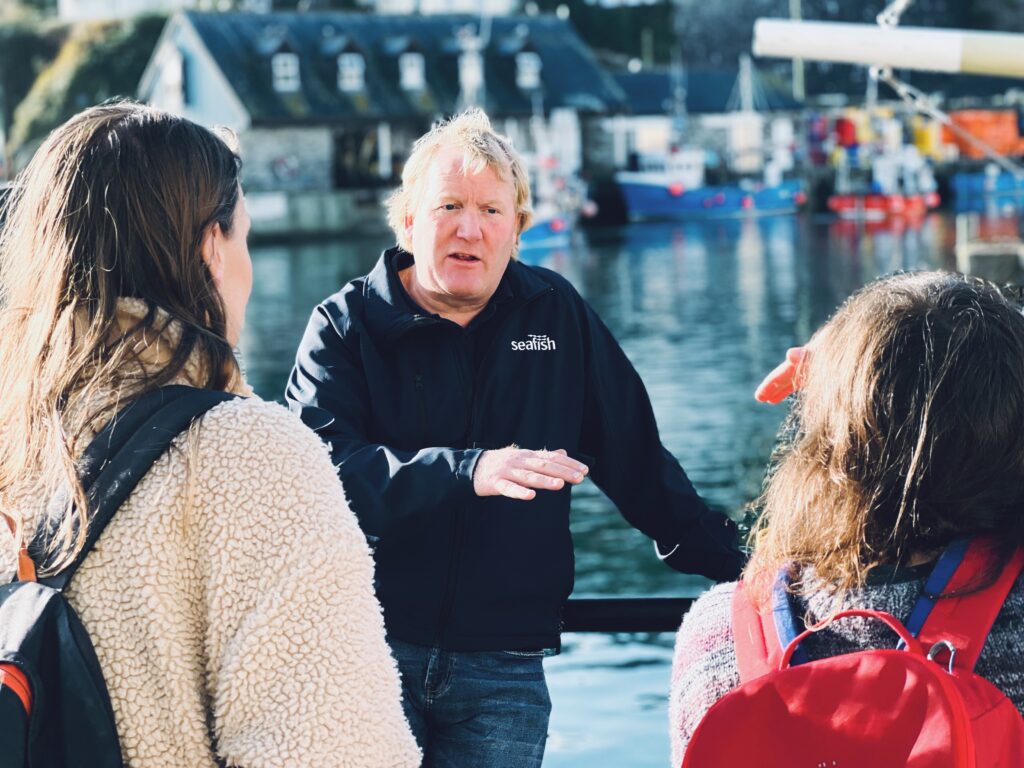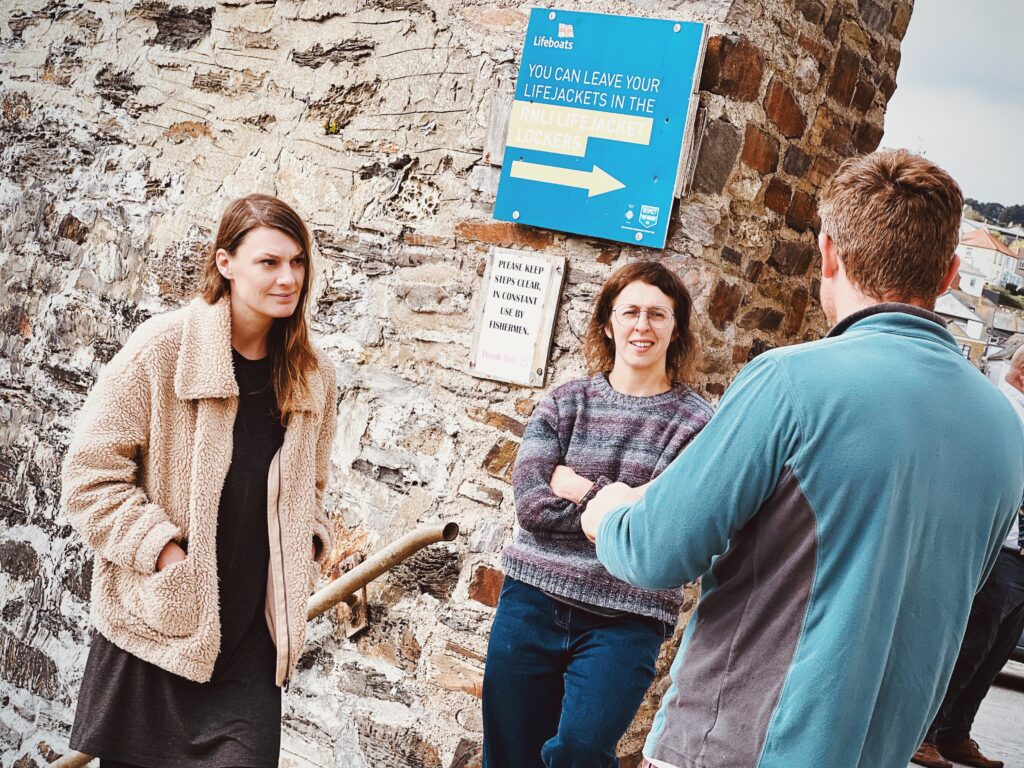

The newly formed Fisheries Industry Science Partnership (FISP) Network, led by the Fishmongers’ Company’s Fisheries Charitable Trust, Fishing into the Future and the Fishing Animateurs, is encouraging the fishing industry to come forward with their ideas for scientific studies that address issues with data deficient fisheries and develop industry ideas that support the science used in decision-making in the UK.
The FISP Network, comprised of three fishing charities, was set up to support a collaborative approach to fisheries research whereby fishers and scientists jointly develop a scientific proposal, based on a set of research needs set by government with stakeholder input. All developed proposals are supported through the process of applying for further stages of government grant funding.
The FISP Network launched in November 2021 to coincide with the inaugural opening of the government’s £10 million grant scheme, Fisheries Industry Science Partnership (FISP). The FISP grant scheme is currently closed, however, the FISP Network are still asking people or groups within the industry to come forward with their ideas, so that proposals can be developed and written in time for the second round of the FISP grant, scheduled for spring 2022.

Why is industry input important?
The value of involving industry and using the intimate knowledge and experience of fishermen has historically been side-lined in scientific research and fisheries management, despite industry being most directly affected by management decisions in terms of their economic livelihoods and well-being. The failure to bring industry into the fold has ultimately impacted the sustainability of fisheries and has contributed to data deficit fisheries, poor research capacity and a siloed approach to conducting and developing fisheries science and management.
It is now widely accepted that industry, academia, and government all have unique contributions to make to fisheries research, and no single group can provide the information required to meet the increasing challenges of fisheries sustainability alone. Research that is collaborative (i.e., involving industry, academia, and government) will help to solve persistent and emerging problems in fisheries; effectively utilise the skillset of stakeholders; and help to build new capacity in fisheries science. Collaborative research also allows stakeholders to disseminate so that the science is effectively understood and accepted by a wider audience outside the scientific community.
The FISP grant scheme and supporting FISP Network provides a platform that enables industry-led priorities that are pertinent to sustainable fisheries management to be given a fair and equal opportunity to be developed and funded.

What is the FISP grant scheme?
The Fisheries Industry Science Partnership (FISP) scheme is a £10 million government fund which seeks to:
Projects can apply for funding to develop a research study (i.e., Part A of the FISP scheme) or fully developed scientific proposals can apply under Part B of the FISP scheme. Grants of up to £20,000 are available to develop research proposals. Contracts of up to £300,000 are available to carry out a full research project.
The FISP grant is a competitive process managed by DEFRA. The FISP Network does not have any influence over the grants awarded.
More information about the FISP scheme can be found on the government website.
What does the Network do?
The Fishing Animateurs identify and collate industry-driven ideas, connect industry with academic institutes, and help to write grant application bids.
Fishing into the Future can help to develop the ideas further by supporting stakeholder relationships and facilitating knowledge sharing between industry, science and government.
The Fishmongers’ Company’s Fisheries Charitable Trust offer match-funding for bids nurtured through the FISP network and approved under the FISP scheme. Funds are capped at £2,000 for Part A and £30,000 for Part B of the FISP scheme.

Who are the FISP Network?
The Fishing Animateurs
The Fishing Animateurs help members of the fishing industry understand the requirements of government grant programmes and support the application process. Their service is free of charge and is aimed primarily to support the small-scale coastal fleet.
Lead Contact: Imogen Smith-Devey. Imogen started working on the Fishing Animateur project two years ago, after studying for a Zoology Degree with an emphasis on marine ecosystems. During her time working in the Fishing Animateur team, Imogen has supported hundreds of fishermen to access government grant funding to improve their businesses. She believes in industry-led action and can help to access funding to enliven projects.
Fishmongers’ Company’ Fisheries’ Charitable Trust (FCFCT)
The Company’s Fisheries Charitable Trust supports a wide range of projects, grants and convening to build and safeguard a prosperous and sustainable fishing and aquaculture industry. The Company’s Fish & Fisheries team work in collaboration with industry, government, academia, non-governmental and third sector organisations and engage across the breadth of the UK fisheries sector.
Lead Contact: Alison Freeman. Programme Manager. Alison Freeman manages the Company’s inshore fisheries programmes. She helped to set up the Company’s COVID-19 ‘Rapid Response Grant Programme’ and the Master Fishmonger Standard. She advocates community-led, regional fisheries management through a number of developing initiatives.
Fishing into the Future
Fishing into the Future is a UK charity that was built and is guided by fishermen. They support people in the fishing industry to engage with fisheries science, management and sustainable business practices and bring fishermen, scientists, and fisheries managers together to share knowledge, strengthen relationships and build confidence in order to achieve effective dialogue, collaboration and mutual understanding.
Lead Contact: Emma Plotnek, Executive Director. Emma Plotnek returned to the UK to work at Fishing into the Future in September 2020 after spending time working in the Chilean fishing sector. Since joining FITF, Emma has been guided by the industry to improve knowledge sharing between industry government, and the scientific community.
Who should I contact?
For further information or to tell us about your idea and/or study, please contact the Fishing Animateurs on:
Call: 01736 362782 to leave a message about your project idea.
Text: 07534580450 with your name, project theme and size of vessel.
Email: fishing@cornwallrcc.org.uk
More information: https://www.fishinganimateur.co.uk